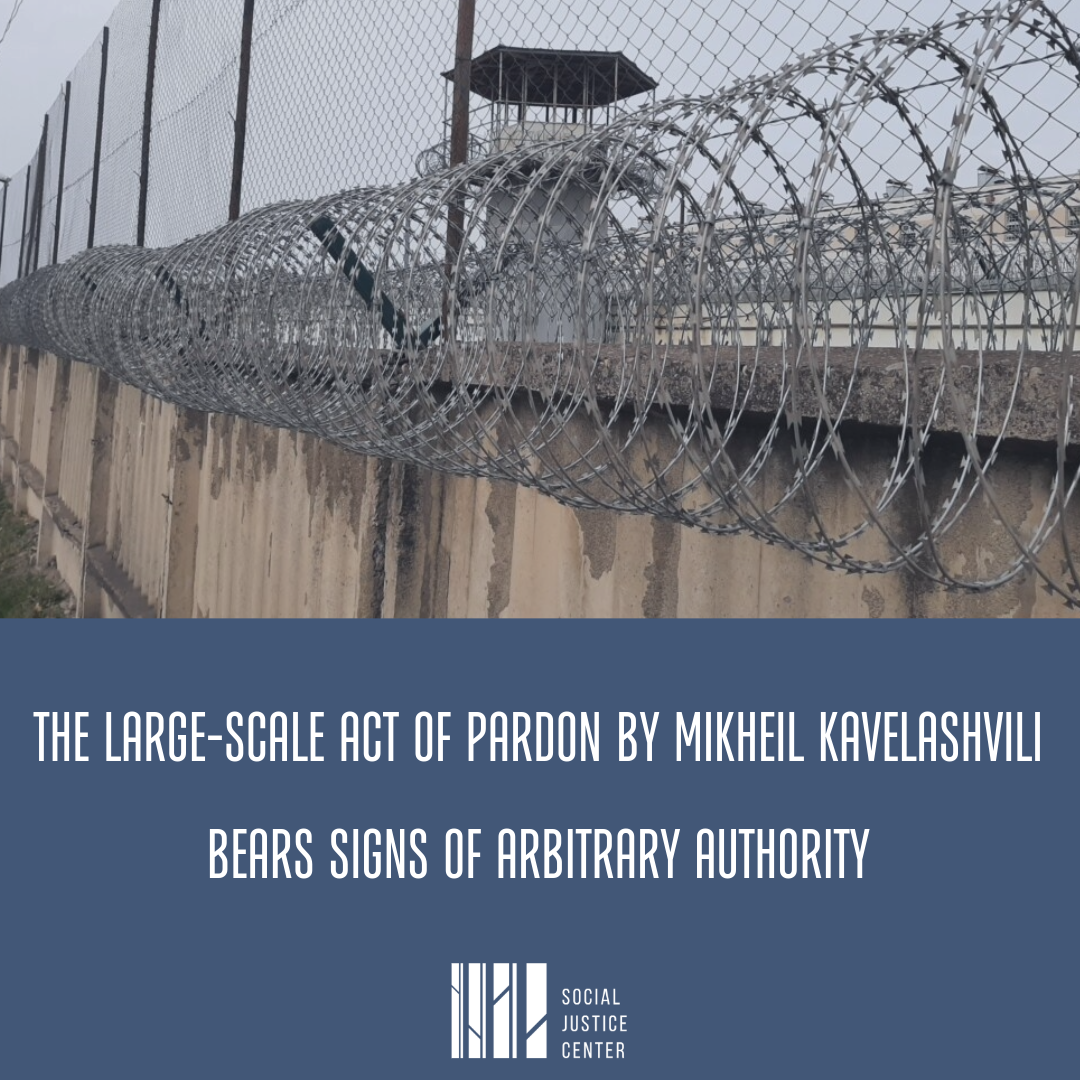საერთო ცხელი ხაზი +995 577 07 05 63


The Social Justice Center responds to Mikheil Kavelashvili’s January 19 decision to pardon 613 convicts and considers that granting pardons on such a large scale, within a short period after assuming office, through a closed and non-transparent process, raises concerns that Kavelashvili exercised this authority arbitrarily and in pursuit of narrow partisan interests.
As the public is aware, this year, in connection with the Epiphany holiday, Mikheil Kavelashvili pardoned 613 convicts. The power to grant pardons is an exclusive prerogative of the president, and the law does not require that such decisions be substantiated or that candidates’ cases be reviewed and assessed by a prior commission. However, the act of granting a pardon should align with the fundamental principles of policy and public accountability. The public should be informed about the work process, the individuals involved in reviewing the cases, and, most importantly, the crimes for which the pardoned individuals had been convicted. Unfortunately, this information remains unavailable to the public. Additionally, it is unclear how much case material was reviewed, how many convicts were denied a pardon alongside the approved ones, and what general rationale justified such extensive use of this mechanism.
It is noteworthy that Georgia’s criminal law and practice are heavily focused on disproportionate sentencing and repression. To this day, Georgia ranks among the top Council of Europe member states in terms of the number of prisoners and individuals under probational sentencing. Consequently, the Social Justice Center has long advocated for a more humane criminal policy and systemic reforms in this direction. Unfortunately, instead of implementing real changes and developing a fair and balanced legal framework and practice, the government continues to arbitrarily apply the existing punitive policy. The arbitrary use of legal mechanisms intended for humanitarian purposes threatens not only overall public order but also the sense of justice and security of crime victims.
It is also significant that this large-scale act of pardon coincides with the 2024 parliamentary elections. In previous elections, the government actively employed legal instruments, alongside other unlawful means, to manipulate election outcomes. Kavelashvili’s January 19 decision appears to be a continuation of this strategy, raising suspicions that it serves as a form of political compensation for the pro-government actions of criminal or violent groups during the elections.
The mass pardoning of this scale is unprecedented in recent years, not only as a single event but even across an entire year. The only exception was in 2013 when 857 individuals were pardoned following a change in government and a declared political commitment to systematically revise the previous administration’s “zero tolerance” criminal policy. In this case, however, there has been no discussion or initiative regarding systemic policy revisions. Mikheil Kavelashvili has not presented any assessment or explanation of the issues he perceives in Georgia’s criminal justice system, nor has he justified the extensive use of his exclusive power of pardon. Moreover, throughout his eight years in parliament, Kavelashvili has never introduced a single legislative initiative related to this matter.
Another key aspect is that the pardon of 613 convicts does not necessarily imply that Kavelashvili reviewed only this number of cases. If that were the case, it would mean that he approved every single application submitted. This raises an even more pressing question: how was Kavelashvili able to thoroughly and comprehensively review such a large volume of cases within less than a month of assuming office? Additionally, it remains unknown whether a special commission was created within the President’s Administration to examine these cases.
The large-scale use of pardon powers through a closed and non-transparent procedure—without the public knowing the crimes for which the pardoned individuals had been convicted—reinforces the perception that this mechanism was used arbitrarily and for narrow partisan interests. Such a practice of granting pardons does not serve the public interest or social security but instead represents political arbitrariness and a clear example of the partisan instrumentalization of Georgia’s existing repressive and punitive criminal justice system.
The website accessibility instruction